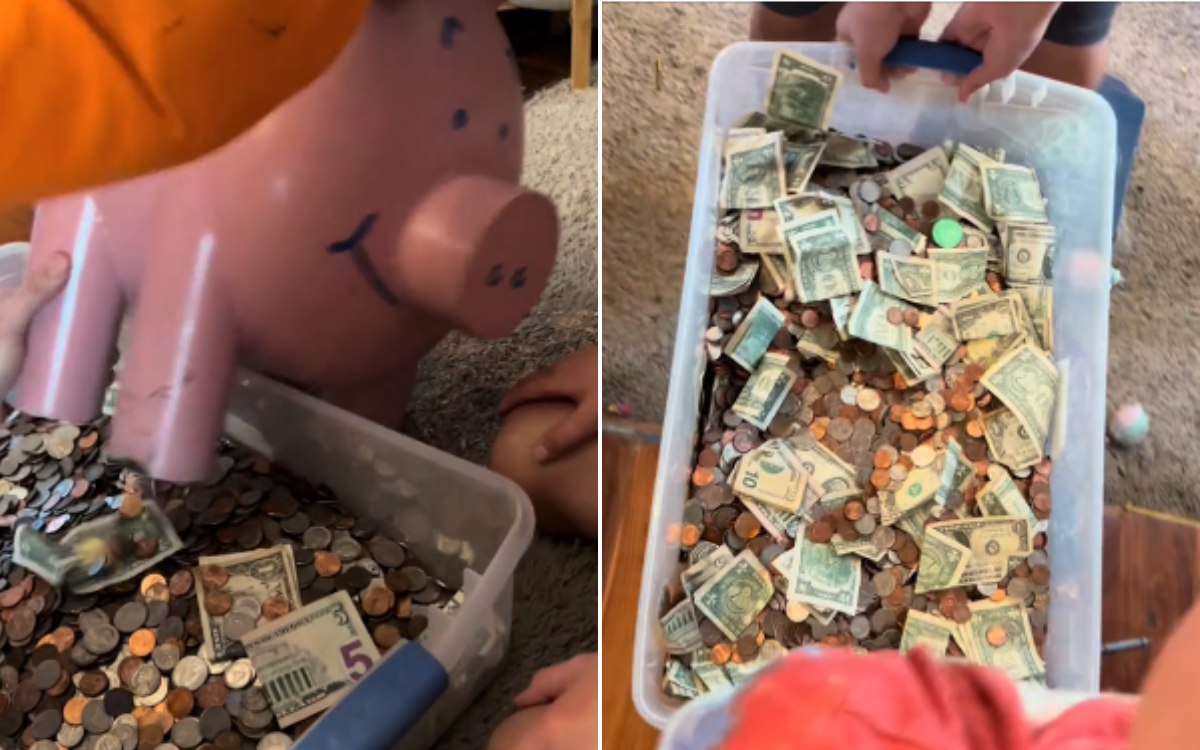- Financial Maverick
- Posts
- Cash Stuffing, Digital Tools, and Retirement Success
Cash Stuffing, Digital Tools, and Retirement Success
Pieces of Bad Advice That Could Derail Your Business
Good morning. It's Tuesday, April. 16 and we're covering "cash stuffing" all over TikTok, pieces of bad advice that could derail your business, mortgage rate spike upending the housing market, and much more.
First time reading? Sign up here.
Stock Market Update
Market Performance: April 15, 2024.
Stocks retreated on Monday as rising yields and worries over the conflict in the Middle East overshadowed strong Goldman Sachs earnings and hot retail sales data.
The Dow Jones Industrial Average lost 248.13 points, or 0.65%, to close at 37,735.11. The 30-stock index relinquished an advance of more than 1% seen early in the session to mark its sixth straight losing day, a streak not seen since June. Monday’s losses also pulled the blue-chip average near its 2024 flatline, a stunning turn after trading close to the 40,000 level just weeks prior.
The S&P 500 slipped 1.2% to finish at 5,061.82, despite trading up as much as 0.88% earlier in the session. The Nasdaq Composite tumbled 1.79% to 15,885.02 as Salesforce and other technology stocks dropped.
Higher rates poured cold water on the market bounce seen Monday morning. The yield on the closely followed 10-year Treasury rose above the key 4.6% level in the session and touched its highest point since mid-November.
Financial Maverick Insights
"Cash stuffing" is all over TikTok — but is it a good way to budget your money?
Budgeting can be difficult and time-consuming. “Cash stuffing,” also known as the envelope method, has emerged in recent years as a straightforward money management tool that enables users to put hard limits on their spending. It’s found increasing popularity on TikTok, where clips with the hashtags ”#cashstuffing”, ”#cashenvelopesystem” and ”#cashenvelopes” have garnered more than 3 billion views combined.
A big part of cash stuffing’s appeal is its simplicity: Every month, adherents simply divvy up their funds among envelopes devoted to different spending categories. But is this low-tech technique a good budgeting strategy?
What is cash stuffing?
Cash stuffing involves putting money in envelopes earmarked for various spending categories — like rent, groceries, entertainment and gas. Once you use up all the money in a given envelope, you aren’t allowed to spend any more in that category until the following month.
Benefits of cash stuffing
While other budgeting methods merely track your spending, cash stuffing physically prevents you from going over budget. Once an envelope is empty, you can’t spend any further. That makes it useful if you’re an impulse shopper or find yourself coming up short every month. With cash stuffing, you can better visualize your spending habits and make adjustments. You can also avoid credit card interest and overdraft fees, which can add up quickly.
Risks of cash stuffing
There’s no two ways about it: Having large amounts of cash at home is risky. If you were robbed or there was a fire, that money would be gone forever. (Even a disobedient dog could cost you thousands.) Say goodbye to online shopping, too. Not just for clothes and other merchandise, but movie tickets and meals. And all those trips to the ATM and cash register are time-consuming.
Pieces of Bad Advice That Could Derail Your Business —
It is reported that nine out of ten startups fail. That's a staggering, frightening and depressing 90%. Yet, while the reasons for this are many, even though the number is high, don't let it discourage you. Most people who get into business are misguided by well-meaning advice that sets them up to fail.
In this article, I'll share the top pieces of bad small business advice I often hear and what you should do instead if you want to set your company up for sustainable growth.
Bad advice: Raise money to start your business
Raising startup capital seems like an essential rite of passage for any new entrepreneur. But here's the reality — you probably don't need it. In fact, it can sink you. One of the biggest myths is that you need outside funding to start and grow a business. I've started multiple successful companies with $0 of outside capital. Too often, entrepreneurs think they need hundreds of thousands or even millions of dollars to launch their ideas.
But here's the reality — raising capital doesn't make financial sense for all businesses. The venture capitalist business model requires massive returns — in some cases, as high as 100 times their investment. Most investors can't back a company aiming for $50 million in value because, realistically, they could never get the return on investment that they seek.
Bad advice: Split the business 50/50 with a cofounder
Don't get me wrong, a strong business partner can be invaluable, but structuring your partnership correctly is critical. Novice entrepreneurs often think bringing on a "cofounder" means splitting everything 50/50. However, not all contributions are created equal. Before signing any partnership agreements, evaluate what each person brings to the table across criteria like the original business idea, startup capital, industry expertise, marketing abilities, etc. Then, allocate equity and roles accordingly.
Bad advice: Create a formal business plan
Writing a beautifully crafted, 30-page business plan is part of the fun for many entrepreneurs. It's where you let your dreams of target audience and sales projections run wild. But in reality, those lengthy documents are rarely useful. Rather than getting bogged down in lengthy pages of written content, create a simple deck with 8 to 10 slides that cover the core elements: Problem to be solved, target customers, your solution, business model, go-to-market strategy and key financial projections.
The path to small business success isn't following generic advice — it's rigorously testing assumptions and then focusing limited resources on what will have the greatest impact based on your unique business model and goals. With the right strategic foundation in place, you can build a profitable, sustainable company without chasing arbitrary startup milestones.
Real Estate News
Personal Finance Tips
Alternative Investing
Do you think kid entrepreneurs should use digital tools to boost business? |
Reach Over 100,000 Financial Mavericks
Advertise with Financial Maverick to get your brand in front of the Financial Gurus in the world. The Mavericks are high-income and highly knowledge people who are always looking for an interesting product or tool.
Calling all Financial Mavericks! To help out a family and friend in need by sharing this newsletter. Tell you what if you ever wanted to be a Hero, Financial Guru, or a Nice Person this is your time!
DISCLAIMER: None of this is financial advice. This newsletter is strictly educational and is not investment advice or a solicitation to buy or sell any assets or to make any financial decisions. Please be careful and do your own research.








